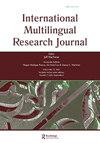处理多语言失语症:挪威言语和语言病理学家的态度和实践
IF 2.1
1区 文学
Q2 EDUCATION & EDUCATIONAL RESEARCH
引用次数: 5
摘要
摘要患有中风和失语症的讲多种语言的老年人越来越多,这需要改变言语和语言病理学家(SLP)的服务,他们将在越来越多的程度上为不同文化和语言的人服务。美国的两项研究表明,在美国与多语言成年人合作的大多数SLP认为,他们的学术和临床培训使他们对与多语言失语症患者(MPWAs)合作准备不足。这种不安全感可能对MPWAs及其家人产生相当大的负面影响。对这些研究的可推广性知之甚少;因此,本研究的目的是调查美国的情况是否与不同人口结构的欧洲国家相当。对挪威的SLP进行了一项基于网络的问卷调查,调查了与工作环境、专业培训、临床工具和程序以及MPWAs的服务提供问题有关的多个因素。总的来说,研究结果与Centeno的一致,表明尽管教育计划不足、临床培训不足和临床资源有限,SLP还是做出了明智的决定来为MPWAs服务。讨论了这些结果对专业教育的影响,以及为最大限度地减少目前向MPWAs提供服务的不足所需的措施。本文章由计算机程序翻译,如有差异,请以英文原文为准。
Working with multilingual aphasia: attitudes and practices among speech and language pathologists in Norway
ABSTRACT The growing number of elderly multilingual speakers suffering from strokes and aphasia requires a change in the services of speech and language pathologists (SLPs), who will be serving culturally and linguistically diverse individuals to an increasing extent. Two American studies have shown that a majority of SLPs who work with multilingual adults in the US felt that their academic and clinical training had left them insufficiently prepared for working with multilingual persons with aphasia (MPWAs). This insecurity may have considerable negative consequences for MPWAs and their families. Little is known about the generalizability of these studies; hence the objective of the present study is to investigate whether the US situation is comparable to a European country with different demographics. A web-based questionnaire was administered to SLPs in Norway, examining multiple factors regarding work setting, professional training, clinical tools and procedures, and service delivery issues with MPWAs. Overall, the results are in line with Centeno’s, showing that SLPs make sensible decisions to serve MPWAs despite inadequate education programmes, shortcomings in clinical training, and limited clinical resources. The results are discussed in terms of their implications for professional education and the measures needed to minimize present shortcomings in service delivery to MPWAs.
求助全文
通过发布文献求助,成功后即可免费获取论文全文。
去求助
来源期刊
CiteScore
4.10
自引率
4.80%
发文量
19
期刊介绍:
The International Multilingual Research Journal (IMRJ) invites scholarly contributions with strong interdisciplinary perspectives to understand and promote bi/multilingualism, bi/multi-literacy, and linguistic democracy. The journal’s focus is on these topics as related to languages other than English as well as dialectal variations of English. It has three thematic emphases: the intersection of language and culture, the dialectics of the local and global, and comparative models within and across contexts. IMRJ is committed to promoting equity, access, and social justice in education, and to offering accessible research and policy analyses to better inform scholars, educators, students, and policy makers. IMRJ is particularly interested in scholarship grounded in interdisciplinary frameworks that offer insights from linguistics, applied linguistics, education, globalization and immigration studies, cultural psychology, linguistic and psychological anthropology, sociolinguistics, literacy studies, post-colonial studies, critical race theory, and critical theory and pedagogy. It seeks theoretical and empirical scholarship with implications for research, policy, and practice. Submissions of research articles based on quantitative, qualitative, and mixed methods are encouraged. The journal includes book reviews and two occasional sections: Perspectives and Research Notes. Perspectives allows for informed debate and exchanges on current issues and hot topics related to bi/multilingualism, bi/multi-literacy, and linguistic democracy from research, practice, and policy perspectives. Research Notes are shorter submissions that provide updates on major research projects and trends in the field.

 求助内容:
求助内容: 应助结果提醒方式:
应助结果提醒方式:


